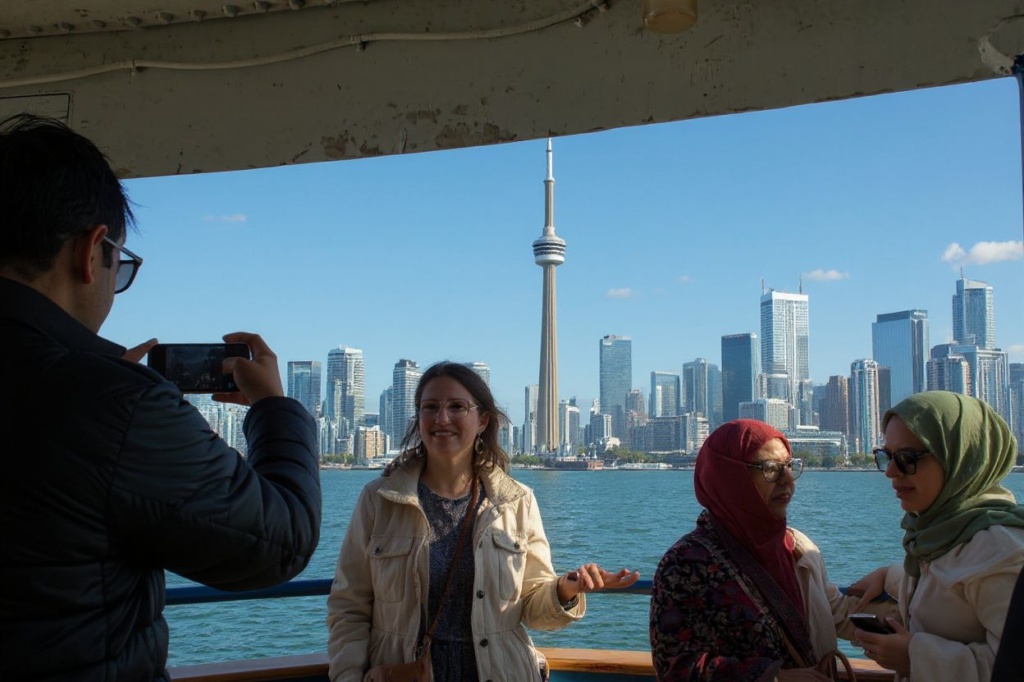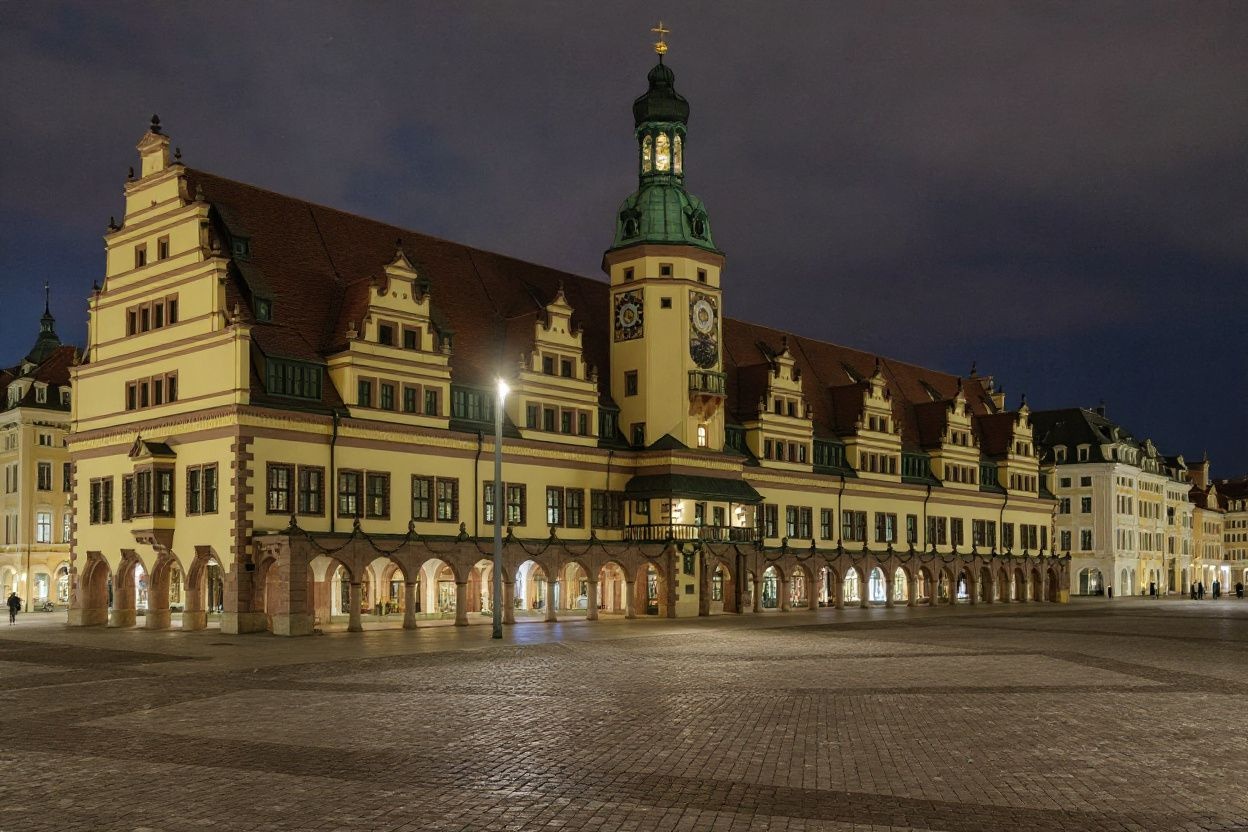
After graduating, not all international students head home to their respective countries. Many stay — and for many reasons.
To them, there are better jobs, better working culture, better salaries — seemingly better everything, even life partners.
A study by Nuffic found that eight out of 10 people choose to stay on for career opportunities and a proper work-life balance.
Others cited economic stability and improved quality of life.
But your decision to stay may come with unavoidable challenges.
It may be hard to secure a job when you’re not fluent in the local language. And it’s even more difficult when you don’t have the means to learn it properly.
Then there are challenges with housing and accommodation, especially when landlords prefer to rent to only locals, i.e. not you who hold a foreign passport.
Being far away from home also means you don’t have your friends and family to give you instant support. You may even face discrimination from locals despite spending several years there already.
One participant in Nuffic’s study said, “I am still being discriminated against just because of my physical appearance. Dutch people who just get to know me for the first time tend to ask me when I am going back home before really getting to know me.”
It’s not so bad, though – especially in the best countries for international students to study and work in after graduating.
These countries provide international students with proper support, flexible work visas and even financial aid in return for their dedication to contributing to the country’s workforce as migrant workers.
“It’s not enough to allow people to come. You need to offer them an attractive package,” says Jean-Christophe Dumont, head of international migration at the OECD (Organisation for Economic Co-operation and Development).
OECD is an intergovernmental organisation consisting of 38 countries, with the goal of stimulating economic progress and world trade.
 Australia in particular has a vibrant Asian community in many of its cities.
Australia in particular has a vibrant Asian community in many of its cities.
Why are countries accepting migrants?
Contrary to what you’re reading in the news about countries closing their borders to foreigners, there are many reasons why countries are welcoming migrant workers.
There has always been a global competition to lure top talents in high-skilled areas such as STEM and IT — Singapore and the US are top examples in this.
But now, countries are also trying to attract migrant workers with a larger skill set, ranging from manufacturing to construction to education and nursing.
When given the right resources, migrant workers excel, even becoming influential leaders in their own fields.
A study shows that migrant workers tend to engage in entrepreneurship at a much higher rate than locals. For example, migrants make up 15% of the population in the US, but they represent 25% of entrepreneurs.
Migrant workers are also needed in countries with ageing population. A country with low fertility is in a perilous position – it undermines the country’s economic future as the workforce will gradually shrink, and consumption is slowed.
It even affects national security, as less able-bodied folk are able to join the military. Therefore, governments start turning to migrants to fill in the gaps, and international students who stay behind fit the bill perfectly.
South Korea, for example, has the lowest fertility rate in the world, at just 0.72 births per woman. It’s expected to fall to 0.65 in 2025.
In response, the Korean government has introduced drastic measures to improve the birth rate, such as matchmaking events, tripling monthly allowances and reducing mortgage interest rates for parents.
In 2023, it increased the maximum number of visas available to migrant workers from abroad from 88,000 the previous year to 110,000.
The best countries for international students to study and work
Australia
Australia is home to some of the top universities in the world (QS World University Rankings 2024) such as The University of Melbourne, The University of New South Wales, The University of Sydney and more.
With bustling student cities, great commute options and high living standards, it’s no wonder the country is a popular option for international students.
The economy is solid and stable, with many opportunities for students to grow and thrive after graduation. The government offers many benefits such as newborn payments, paid paternal leave, and even free education for children. It’s no wonder it’s considered as one of the best countries for international students to study and work.
If you plan to head to Australia for your studies, check out what’s new for students in 2024. For more information on Australia’s post-study work visa, refer to the Department of Home Affairs.
 People take pictures with the view of the CN (Canadian National) Tower and the Toronto skyline from the ferry on Lake Ontario.
People take pictures with the view of the CN (Canadian National) Tower and the Toronto skyline from the ferry on Lake Ontario.
Canada
Are Canadians welcoming to international students who want to work in their country? You can judge this yourself based on this data: if current population trends continue, immigrants could make up 34.0% of the population of Canada by 2041.
That means more than one out of three people are born outside Canada.
International students will find that Canada offers a high quality of life, with excellent education and a great public healthcare system. There are sufficient employment opportunities, with the country’s unemployment rate remaining at a low, stable 5%.
If you want to work here after graduation, you’ll need a post-graduation work permit. It’s valid for up to three years, and allows international graduates to work for any Canadian employer without requiring a job offer.
Canada also offers over 100 different immigration programmes for migrant workers interested in permanent residency — making it one of the best countries for international students to study and work.
 There are almost 127,000 architects in Germany, registered as either architects, interior designers, landscape architects or urban planners.
There are almost 127,000 architects in Germany, registered as either architects, interior designers, landscape architects or urban planners.
Germany
There is a huge demand for technically skilled workers across multiple industries, such as automobiles, pharmaceuticals, business, commerce, etc. Coupled with a great standard of living, rich history and culture and work visa benefits, it’s no surprise that Germany is a popular choice for international students to settle down in.
International students studying in Germany can apply for an extended 18-month Post Study Work Visa.
For students who graduated and returned to their home countries but intend to come back and work in Germany, they can apply for the Job Seeker Visa.
This visa allows holders to stay in the country for six months to find employment, and afterwards apply for a work permit to remain in Germany long-term.
 Elderly people play checkers game in Chinatown of Singapore on January 26, 2024. Singapore is dealing with a growing ageing population — nearly one-fifth are aged 65 and above.
Elderly people play checkers game in Chinatown of Singapore on January 26, 2024. Singapore is dealing with a growing ageing population — nearly one-fifth are aged 65 and above.
Singapore
Singapore is one of Asia’s technology hubs, with amazing multicultural opportunities and great local food – watch Crazy Rich Asians to know what we’re talking about.
While it’s one of the most expensive cities to live in, it ranks high on global indexes for quality of life.
Low crime rates, effective public transport and high salaries make it one of the best countries for international students to study and work in.
International students in Singapore on a valid immigration pass can submit an application for permanent residency after two years.
They must have passed at least one national exam, or are in an Integrated Programme.
 Japan is home to several universities that offer quality education at affordable prices.
Japan is home to several universities that offer quality education at affordable prices.
Japan
Japan is determined to attract and employ more foreign students.
The government has set a target of having 400,000 international students studying in the country by 2033, with the intention of having them stay on and work in the country after graduation.
International students can enjoy new grants and commitments that Japan is implementing to improve global outreach as well.
Combined with employment opportunities in tech, finance and tourism industries, along with a serene way of life with great public transport and healthy living styles, Japan is considered one of the best countries for international students to study and work.
Note, however, that most companies still require you to be able to speak and write in Japanese fluently. Japan is notorious for having some of the poorest levels of English proficiency among developed nations.
This can explain why most companies require you to have an N2-level Japanese Language Proficiency Test — this level shows you have a “business level” command of the language.
If you’ve reached this level, there are a variety of work visas available in Japan, such as the regular Work Visa, Highly Skilled Professional Visa, Working Holiday Visa, Specified Skills Visa and more.
Students will also be required to apply for a Certificate of Eligibility (COE) before applying for their visa. For more information, read their visa application procedure here.
 Spectators waving the Irish flag watch the parade during St Patrick’s Day festivities in Dublin.
Spectators waving the Irish flag watch the parade during St Patrick’s Day festivities in Dublin.
Ireland
Ireland offers one of the best education systems in the world, along with an affordable cost of living, a friendly culture and great career opportunities. The country is becoming a popular choice for students to stay after graduating as it offers generous post-study work visas.
The Ireland post-study work visa duration for the Third-Level Graduate Scheme is two years for postgraduate degree holders and three to four years for undergraduate degree holders.
The country also offers three other post-graduate work permits for international students – the critical skills employment permit, general employment permit, and internship employment permit.
The best part? There’s no age limit to apply for a work visa in Ireland.
 Two women walk across a road in the Jongno district of Seoul. There are around 1.48 million migrants in South Korea today.
Two women walk across a road in the Jongno district of Seoul. There are around 1.48 million migrants in South Korea today.
South Korea
South Korea recently made headlines for its declining birth rate, which is significantly affecting its economy and workforce.
International students who stay after graduation can excel in the education sector, especially English tutors and teachers on the E-2 visa.
Students who want to work in other fields can apply for the D-10 visa or the job-seekers visa to find employment in the country. The visa has a point system that requires applicants to fulfil a minimum of 60 points to qualify.
The country is introducing two new visas in 2024 – the Workation visa and the Hallyu visa.
The Workation visa allows foreign nationals to stay for up to one year, and combines work and travel.
The Hallyu visa will allow foreign individuals enrolled in cultural academies – such as K-Pop trainees – to stay for a maximum of two years.
If you’re interested in healthy and affordable food, a rich traditional and modern culture, and never-ending shopping adventures, South Korea is among the best countries for international students to study and work in.
 Rockefeller Center, the epicentre of NYC art and history, and an inspiration for art students all around the world.
Rockefeller Center, the epicentre of NYC art and history, and an inspiration for art students all around the world.
US
It’s the classic American dream – many international students are eager to graduate and settle in the US, the land of opportunity.
The country promises a high standard of education, innovation in health and medical fields, along with one of the highest average household income in the world.
The US Bureau of Labor Statistics states that employment in the US is expected to grow by 7.7% from 2020 to 2030, with an increase of almost 12 million job opportunities for both local and migrant workers.
This makes it one of the best countries for international students to study and work in.
F-1 visa, M-1 visa, and J-visa are the three types of US student visas that international students can apply for to study in the US.
F-1 visa holders are also eligible to apply for OPT (Optional Practical Training), permitting them to stay and work for an additional 12 months without requiring their employer to sponsor them.
If you have a STEM degree, you can extend your OPT by another 24 months.
If you’re interested in immigrating to the US, find out more on their website.
For other permanent residency options, check out our article.
 London is home to more than three million migrants.
London is home to more than three million migrants.
UK
The UK is known for its beautiful culture and history, healthcare services, top-class education and warm hospitality. The country boasts a strong currency and migrant workers take home a comfortable salary.
For international students wishing to stay in the UK after graduation, it’s a good idea to opt for a Graduate visa.
It’s a flexible visa, allowing undergraduate or master’s students to stay in the UK for up to two years after graduation, and PhD graduates for three.
The visa doesn’t require an employer to sponsor you, and you can work at any skill level.
The only downside is that you cannot extend your Graduate Visa, but you can switch to a different one.
A Skilled Worker visa will allow you to come to or stay in the UK for an eligible job with an approved employer.
 Water flows down a stream in the Siberia Valley in the Mount Aspiring National Park located near Queenstown on the South Island of New Zealand.
Water flows down a stream in the Siberia Valley in the Mount Aspiring National Park located near Queenstown on the South Island of New Zealand.
New Zealand
Beyond its impressive landscape and sceneries, New Zealand is home to some of the top universities in the world.
Residents enjoy a first-world environment in natural surroundings, and an active outdoor lifestyle makes it an ideal place to raise children.
The country is famous for its straightforward visa process and minimum requirements, making it one of the best countries for international students to study and work.
International students can apply for either the Skilled Migrant Visa or Entrepreneurship Work Visa.
For students who have graduated and returned to their home countries, but intend to return to New Zealand, the working holiday visa is a fantastic option.
It allows applicants to stay in the country for up to 12 months, and up to 36 months if they are from the UK.









